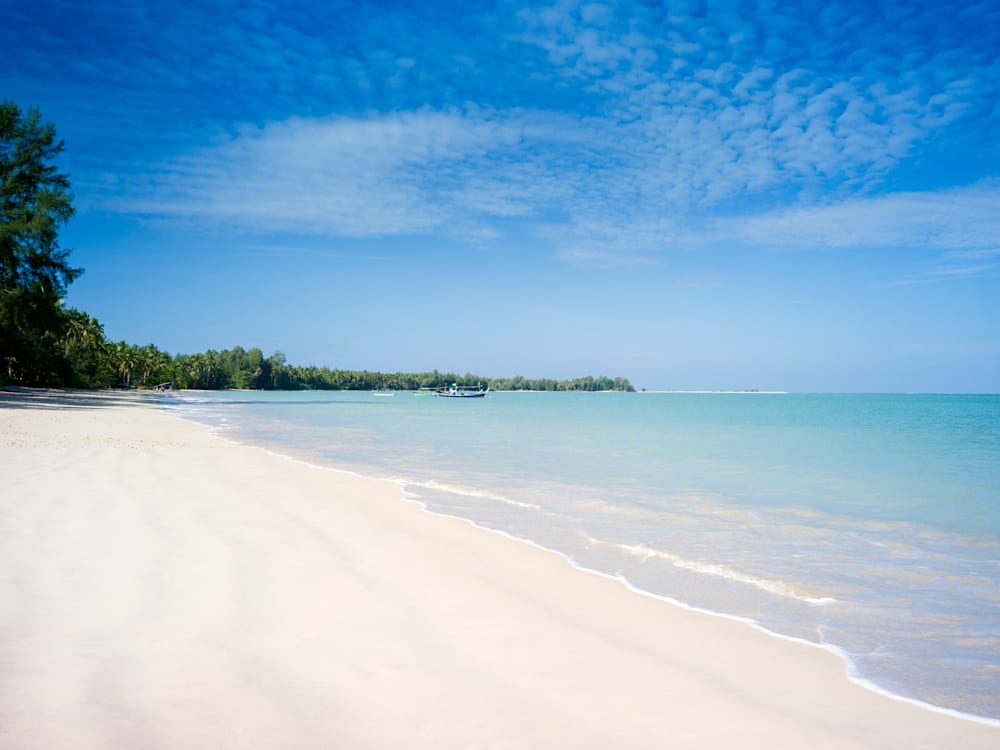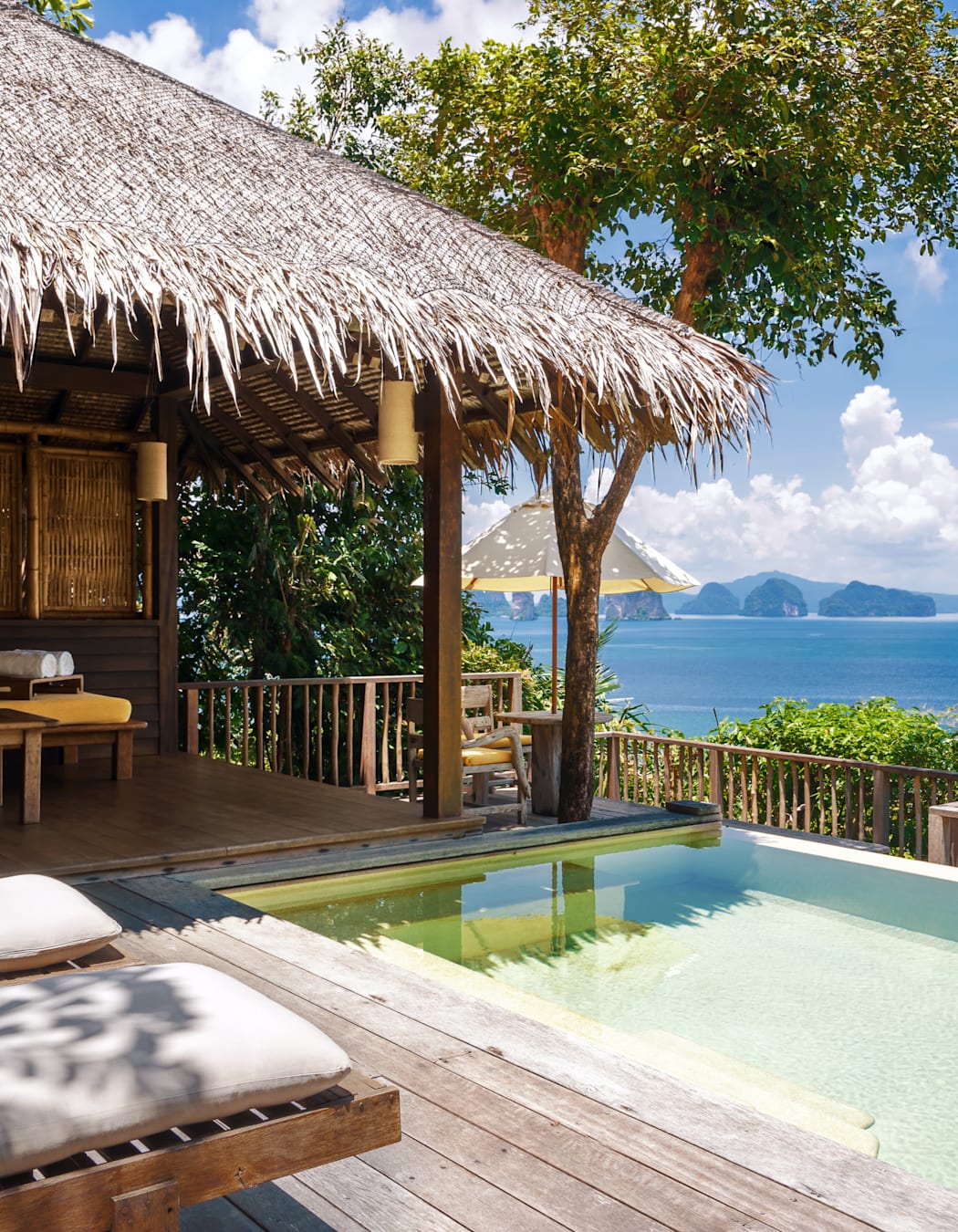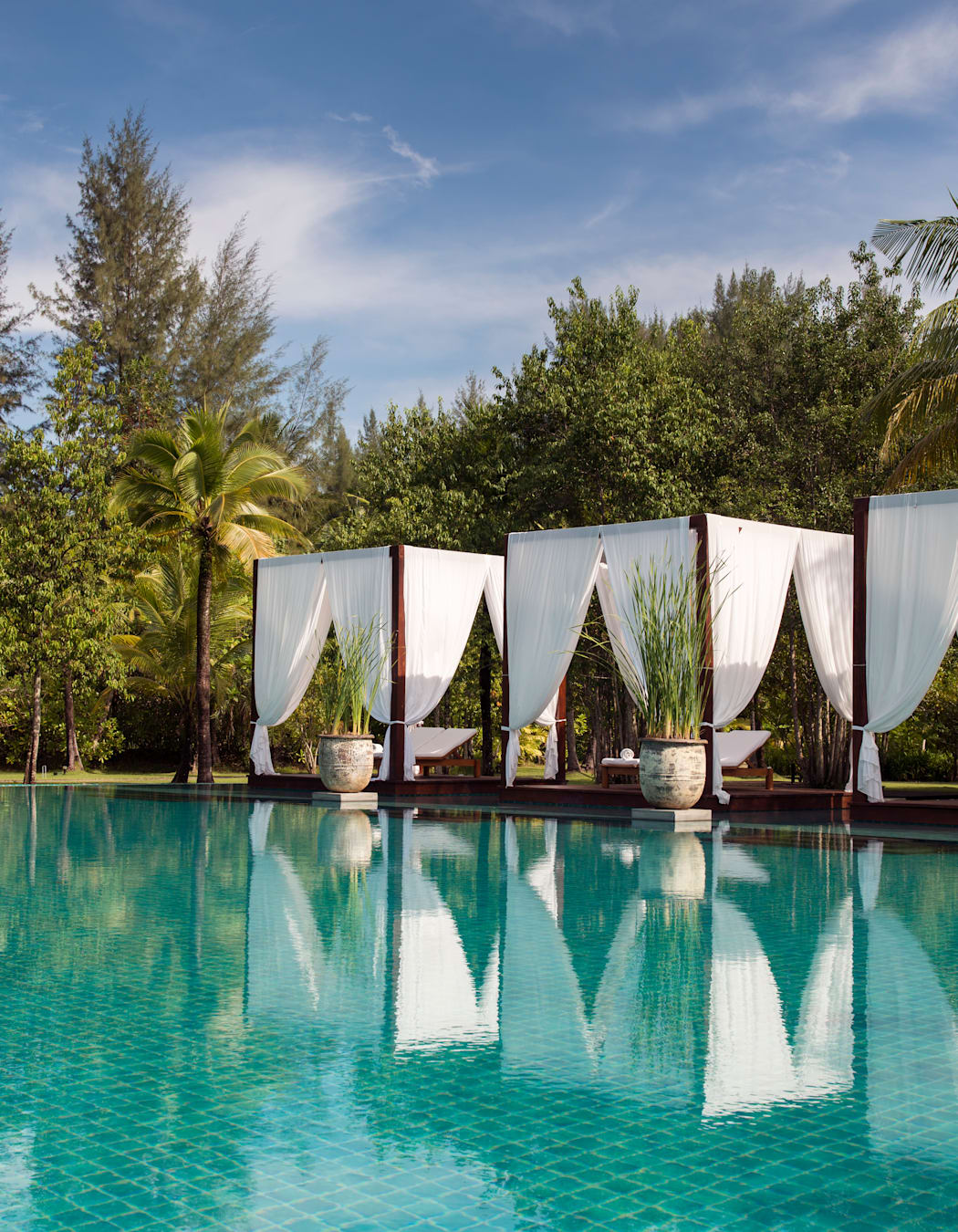If Richard in Alex Garland’s The Beach was ultimately horrified by what humans tend to do to paradise when they find it, he’d probably be even more disturbed today. Mass-tourism has gotten a little out of control of late — just ask the tourists who are being sprayed with water pistols by angry locals in Barcelona, or the Greek islanders desperately protesting over-development, habitat destruction and the building of international airports on their tiny landmasses.
But that doesn’t stop us when faced with a hit TV show glamourising jet-set lifestyles and fabulous locations. After the second season of The White Lotus placed Sicily centre-stage, its hotel location, Four Seasons’ San Domenico Palace, was said to have a two-year-plus waitlist. Season three, coming next year, has been filmed in Thailand and is set to have a similar effect on Koh Samui, Phuket and Bangkok, all already popular destinations. But tourism can be a force for good, too — so let me tell you a more optimistic tale of a recent trip to Thailand.

After a few days in busy, over-developed Phuket, it was a relief to leave beach town Patong on a Sunday morning and head to the dock where a speedboat bound for Six Senses Yao Noi, in an archipelago adrift in the Andaman Sea, awaited. Inevitably, as my friend and I drove out of town, we passed stray revellers still up at dawn and a traffic-jam-causing ambulance responding to what was likely an inebriation-related injury from the night before. After a quick coffee at the sleepy port as we waited for our fellow guests, we were whisked over to the smaller of the two main Koh Yao islands, Yao Noi, and instantly felt like we were in the old Thailand. Trundling by in our open-back Thai cab (officially a songthaew), we passed locals tending to their gardens or whizzing past on motorbikes, bleary-eyed backpackers who had made it to the beach for sunrise, and simple shacks lining the shore, ready to dispense unpretentious cocktails come sunset.
It didn’t take us long to see that Six Senses Yao Noi is about as wholesome as a luxury resort can get. Guests are invited to head to the farm each morning to collect their eggs before breakfast, or just to say hello to the hens and other animals. The chickens are so cosseted out here in paradise that they have jazz music played to them. Other dreamy days on the island begin with a yoga class on the open-air deck or a swim down at the shore.
At the spa, there’s a doctor in residence, on hand to create more intensive wellness programmes should you be in need of a full reset. Guests can mix their own potions at the apothecary bar and learn about the benefits of certain ingredients, from homemade coconut oil to coffee, cinnamon and kaffir lime.
There’s a deli at the Living Room, where you can build your own sandwich for picnics on the island. Despite it taking 18 months to make, fish sauce is produced on-site, too. As at most other outposts, the island is home to a water-bottling plant — and over 100,000 people in the local community have access to clean drinking water thanks to Six Senses filtering systems. In place of an air-conditioned indoor kids’ club, children spend the day outside, at the mushroom hut, feeding banana leaves to the goats or watching them being milked, or joining the chickens in some jazz appreciation.

Six Senses Yao Noi
Our room, an Ocean Pool Villa, was so absurdly incredible that against my better judgement, I channelled my inner influencer and found myself recording a video to drop on TikTok (it never quite materialised on social media but I did send it to a few devoted contacts on WhatsApp instead). It’s rustic, yes, but in the best possible way: the kind of room to make you feel like you’re stranded on a desert island, albeit with a butler (or GEM — a ‘guest experience manager’) a quick call away to be your very own Man Friday. Only instead of just loyalty, competence and assistance, they’re also on hand to arrange immersive trips to rice fields and rubber plantations, whisk you around the resort by buggy, or take you up to the Hilltop for a meal with a view, a sunrise experience or a sunset photo-shoot. The vistas of the limestone karsts in the bay from up here and from the sea-facing villas are unforgettable — this is the Thailand of your dreams.
Unsurprisingly, it’s a wrench to leave. Being back on Phuket is a sensory overload, but luckily we’re soon leaving the crowds behind once more. Over the bridge to the mainland in Phang Nga, my friend and I arrive at the Sarojin in time for Valentine’s Day, which we swiftly rebrand as ‘Galentine’s’. While this supremely romantic resort, set around lantern-lit gardens and at the edge of a beautiful beach, would be a dream spot for couples, it was brilliant for a girls’ break, too. Khun Kade, the general manager, made sure of that, crafting an itinerary for us of spa treatments, river cruises, waterfall treks and hikes in nearby national parks with primary forests. He was genuinely disappointed for us that the hotel’s boat — which could have transported us over to the Similan Islands, one of the premier dive spots in the world — was already out on a charter. The activities on offer at the Sarojin are designed to connect guests with the local environs, outside of the resort, and not keep them within its confines (though staying put in a breezy cabana by the pool was an equally tempting alternative).
The owners of the Sarojin first had their sights set on opening a hotel in the late Nineties, when Patong was already busy — possibly in part due to the popularity of The Beach. An Irishman who ran a bar there told them tales of when water buffalo would wade through the neighbouring paddy fields. Today, with the cruise ships and party boats, it’s hard to imagine. They took the Irishman’s advice and searched further north, settling on a site in Khao Lak. It even had the roaming buffalo. Just 10 days before the hotel was due to open, the Indian Ocean Tsunami in December 2004 struck and devastated the buildings. The owners were committed to rebuilding the hotel and helping the community recover. Now, two decades on, the dedication still shows — this is a hotel with heart and soul.

The Sarojin
The generous meal times speak to this hospitable, maternal character — breakfasts are served until 6pm, with a constantly reappearing pastry basket and free-flowing fizz. Portions are small to minimise waste, but you can order as many plates as you like. The same is true at the weekly Thai nights, where you can have multiple dishes sent to your table and go on an edible odyssey around the country.
Both the Sarojin and Six Senses Yao Noi go out of their way to give guests a sense of place, rather than being a could-be-anywhere generic resort. This seemed rather heavenly to me and a stark contrast to some other parts of Thailand. Paradise is still out there. You just have to look a little harder — and tread a little more lightly — to find it.
Ready to seek out your own private paradise? See our full collection of Thailand hotels



